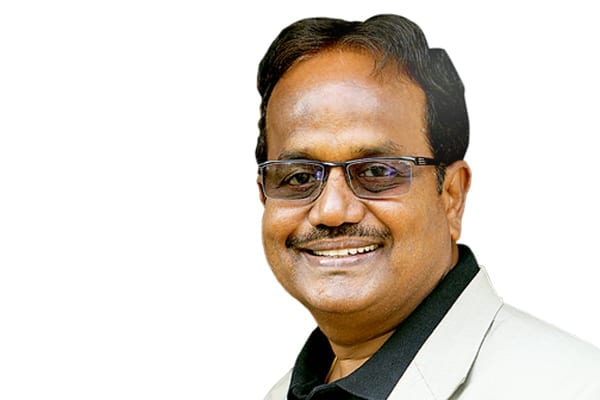The inferior quality of education system and the resultant unemployability of the engineering graduates coupled with the lack of focus on the availability of digital technologies has led the state of Andhra Pradesh to take up initiatives in bringing about a change in this space. In an interview with EC’s Ankush Kumar, J A Chowdary, Special Chief Secretary & IT Advisor to the Chief Minister, Government of Andhra Pradesh, shares the key focus areas for his state, and tells us why he is betting big on emerging technologies such as Augmented Reality and Blockchain
What is the focus of your state in terms of technology adoption? Are you looking beyond the traditional approach?
We are currently focusing on Blockchain as there is a huge demand and also a big shortfall in terms of availability of manpower in this field which is evolving. Blockchain is a complex and expensive technology that is known to be a foolproof system to prevent cyber crime and hacking. It’s a big opportunity for young students coming out of the colleges looking for the jobs as the industry is shifting towards this technology. To cater to this demand, we are setting up a Blockchain Institute of Technology in association with some of the global giants in Visakhapatnam. With the growing adoption of automation, financial technologies are growing more than 25 percent annually and that’s the reason why many banking corporations today are using advanced technologies. The banks and other financial institutions are using financial analytics, new age cyber security solutions, and also Blockchain
technology solutions.
How do you think these technologies will be beneficial for the students? Has it already been implemented in some of your departments?
With the combination of financial analytics, Blockchain technologies and cyber security, we want to open an ocean of opportunities for students. We believe it will help in creating deep digital technology knowledge professionals. Today we see most of the engineering students coming out of college with just a superficial knowledge which is not sufficient in getting jobs. To survive globally, we feel these are the emerging areas and students need to have deep rooted understanding. Yes this technology has already been introduced in two state government departments on a pilot basis — civil supplies and land registration. We have already initiated discussions on how this technology can be replicated in other departments. It is important for us to first assess the performance in these two departments and then take a long term approach. It will take around six months if we plan to cover
all government departments with this.
From an education point of view, what are some of the major initiatives?
We all know how IIIT was established in Hyderabad to cater to the need of IT in the early days of the development of Andhra Pradesh. Today the institute is one of the best engineering colleges in India competing with IITs and the students are preferred by many global MNCs. In the similar manner we have realized the need of more focused institutions that can work on deep digital technologies like automation, machine learning, analytics, etc. Therefore, we are now setting up India’s first advanced digital technologies university. In June 2017, we will be starting other schools called the School of Fintech and School of Blockchain Technology. We will also be starting with schools of augmented reality and virtual reality. Most of the entertainment, media, education and tourism industry will be swamped by the demand of augmented reality and virtual reality. Therefore it’s a big opportunity for India to create content in the AR mode and that content is going to cater to the upcoming demand in these areas. The other schools will be in the areas of Artificial Intelligence and machine learning. So these are the independent schools that will be part of the digital university that is coming up at Tirupati. We will not only be focusing on the learning and education but we will also have the incubator there. We also have a research program. We already have global research companies setting up their R&D labs at IIIT.
What do you think is the biggest roadblock for development and how do you plan to overcome these hurdles?
The fundamental roadblock is the unavailability of technology. Unfortunately in the last ten years, our quality of education system has gone down. As mentioned earlier, we all are providing superficial knowledge to engineering students. So, the unskilled workforce which has been the biggest roadblock is going to be overcome by creating the digital university with the pedagogy which is not driven by only the theoretical knowledge. Education should include industry use cases and industry case studies with the active support of the industry. So we are now turning this problem into an opportunity by creating the needed skills and that is going to be our USP going forward.
What do you think has been the biggest strength of the state which is helping you to move ahead at such a brisk pace?
Our key strength is our leader – Nara Chandrababu Naidu. World over wherever I go, everybody recognizes me as an official from the state of N C Naidu who was the first to bring the concept of Hi-Tech city and got some of the biggest global companies to India. So even in the case of a startup, when they reach to the venture capitalist, they do not straight away ask about the business idea. They are more eager to know the team members and their strengths. Therefore, even getting appointment from the CEOs of the leading companies becomes easier when they come to know that I am from the state where the chief minister is N C Naidu. It is because of his popularity as the CM who understands technology so well that we are able to attract some of the biggest technology brands in the state.
